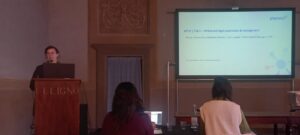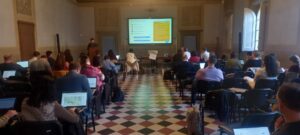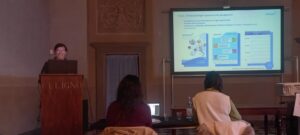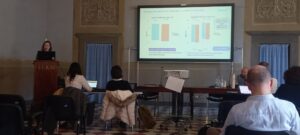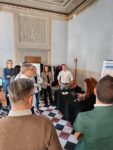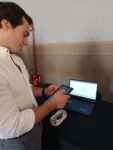Third review meeting of the Pharaon project with the European Commission
On 20 and 21 March, the third review meeting of the Pharaon project with the European Commission took place. The awaited meeting took place in Florence and Cáritas Coimbra was present as a partner of the project, being represented by Elisabete Pitarma and Bruna Franceschini from the Innovation Department.
As the organisation responsible for the Ethics task in this project, Cáritas Coimbra had the important role of presenting, on the first day, the developments made over the last year in the field of ethics.
On the second day, it was time to present the Portuguese pilot intervention results. This pilot is divided between two organisations, Cáritas Coimbra and Santa Casa da Misericórdia da Amadora (SCMA). In addition to these two organisations, Glintt was also present as a technological partner.
On this last day, Cáritas Coimbra, together with SCMA and Glintt, conducted a practical demonstration of the services and technologies applied during the Portuguese pilot period.
They presented the Sentab application (app) and how they enhanced social interaction among older adults in the organisations, as well as with formal and informal caregivers, volunteers, and service providers. To promote a safe and comfortable environment for older adults, they presented GlobalCare, demonstrating how this technology was integrated into Home Care Services with a holistic and integrated approach among the services already provided. Also with this goal, the Zensi app was introduced, which allows monitoring sleep patterns as well as possible falls or accidents, if the older person does not return within the expected time during the night. Lastly, to enhance community participation, Citizeen was presented, an app that aims to bring green and blue spaces to the community and promoting social participation through citizen science actions and nature preservation. In this application, citizens can identify points of interest, biodiversity, as well as report problems in these spaces.
The next steps for the Portuguese pilot involve concluding the pilot interventions, applying the outlined exit strategies, analysing all data collected throughout the study, and drawing the best practices and conclusions from the study.
The Pharaon project received funding from the European Union’s Horizon 2020 research and innovation programme under grant agreement No. 857188.
